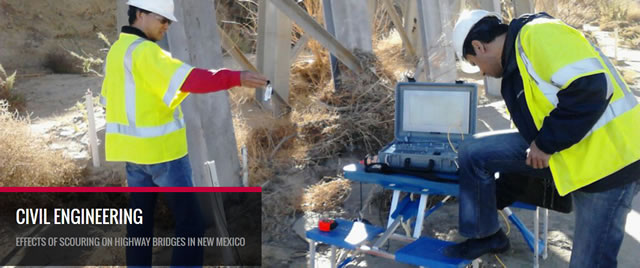
Civil Engineering ETDs
Publication Date
Summer 7-15-2021
Abstract
This research aims to investigate the relationship between stress, damage, crack propagation, and permeability evolution in concrete. A novel experimental test method is presented that enables monitoring post-peak cracking behavior of concrete using the Brazilian tension test by slowing crack propagation while concurrently measuring permeability and monitoring damage propagation using acoustic emission techniques. The modified Brazilian test method utilizes spring supports in parallel to the test specimen to off-load the test specimen incrementally to slow down the post-peak crack propagation. A vacuum flow system is attached to the rear side of the concrete during loading to measure apparent air permeability through the specimen. The collected data is then used to calculate the permeability of the sample as cracks initiate, grow and coalesce. Acoustic emission sensors are used to observe damage occurrence and track damage propagation in the concrete during the test. Numerical modeling using the finite-discrete element method is also used as a comparison to experimental results and to understand the stress state during crack propagation. The observations presented enable correlating damage initiation and coalescence, crack propagation, and permeability evolution in concrete under tension stresses.
Keywords
Brazilian Indirect Tension Test, permeability, damage evolution, finite-discrete element method, concrete
Document Type
Thesis
Degree Name
Civil Engineering
Level of Degree
Masters
Department Name
Civil Engineering
First Committee Member (Chair)
Mahmoud Reda Taha
Second Committee Member
John Stormont
Third Committee Member
Esteban Rougier
Recommended Citation
Padilla, Angel M.. "Monitoring Damage Occurrence, Post-Peak Crack Propagation and Air Permeability in Concrete Using the Brazilian Indirect Tension Test." (2021). https://digitalrepository.unm.edu/ce_etds/280
